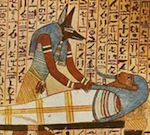Historic Humanists- Bayle, Pierre

It has been asserted, that a moral Atheist would be a monster beyond the power of nature to create: I reply, that it is not more strange for an Atheist to live virtuously, than for a Christian to abandon himself to crime!
If we believe the last kind of monster, why dispute the existence of the first?
In matters of religion it is very easy to deceive a man, and very hard to undeceive him.
— Pierre Bayle Read on…









